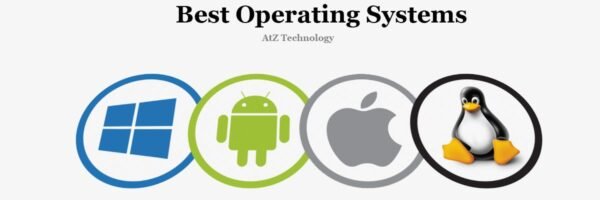Operating systems are the backbone of modern computing. They provide the foundation on which software and applications run, managing the hardware and software resources of a computer to ensure that programs run smoothly and efficiently. There are many different operating systems available today, each with its own unique set of features and capabilities. In this article, we will delve into the details of operating systems, exploring what they are, how they work, and some of the most popular operating systems in use today.
What is an Operating System?
An operating system, or OS, is a type of software that acts as an intermediary between the user and the computer hardware. It provides the basic set of instructions that control the computer’s hardware and software resources, allowing the user to run applications, manage files, and perform other tasks. An operating system can be thought of as the foundation of a computer, as it provides the necessary services and tools for other software to run on the computer.
The operating system is responsible for managing the computer’s memory, managing input and output to and from the computer, and scheduling tasks for the computer to perform. It also provides a graphical user interface (GUI) for users to interact with the computer, as well as a set of applications and utilities to help users perform common tasks.
How does an Operating System work?
At the heart of an operating system is the kernel, which is a low-level software layer that communicates directly with the computer’s hardware. The kernel is responsible for managing the computer’s resources, such as memory, input/output (I/O), and processing time, and allocating them to the programs that need them.
The operating system also includes a set of drivers, which are specialized software components that communicate with specific hardware devices, such as printers, keyboards, and displays. These drivers provide a common interface between the operating system and the hardware, allowing the operating system to control the hardware without having to know the specific details of how it works.
The operating system also includes a file system, which is a method for organizing and storing files on the computer’s storage devices, such as hard drives or solid-state drives. The file system provides a standard way for programs to access and modify files, and it helps to keep the files organized and secure.
Finally, the operating system includes a set of libraries and APIs, which are collections of pre-written code that can be used by other programs. These libraries and APIs provide a standard set of functions and services that programs can use, such as reading and writing files, displaying graphics, or communicating over a network.

Popular Operating Systems in 2023
There are many different OS in use today, but some of the most popular include:
- Microsoft Windows: Windows is the most widely used operating system in the world, running on over a billion computers. Windows is a proprietary operating system developed by Microsoft and is available in several different versions, including Windows 10, Windows 8, and Windows 7. Windows provides a user-friendly interface and is known for its compatibility with a wide range of hardware and software.
- Apple macOS: macOS is the operating system used on Apple’s Mac computers. It is known for its stability, security, and compatibility with Apple hardware and software. macOS is a proprietary operating system developed by Apple and is only available on Mac computers.
- Linux: Linux is an open-source operating system that is used on a variety of computers, from smartphones and embedded devices to supercomputers. Linux is known for its stability, security, and customizability, and it is available in a variety of different distributions, each with its own unique set of features and tools.
- Google Android: Android is the operating system used on most smartphones and tablets. Android is based on the Linux operating system and is open source, meaning that it can be modified and customized by developers. Android provides a user-friendly interface and is known for its compatibility with a wide range of hardware and software. Android is developed by Google and is used by a large number of manufacturers, including Samsung, LG, and HTC.
In conclusion, operating systems play a critical role in modern computing, providing the foundation for software and applications to run. They manage the computer’s hardware and software resources, ensuring that programs run smoothly and efficiently. There are many different operating systems available today, each with its own unique set of features and capabilities. Whether you are using Windows, macOS, Linux, or Android, it is important to understand the role that your operating system plays in your computing experience.
